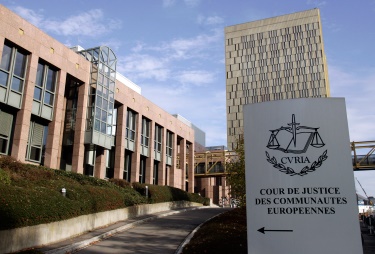Context
This case was referred from the High Court R (on the application of McCarthy and ors.) v the Secretary of State for the Home Department [2012] EWHC 3368 (Admin), and considered the applicability of Directive 2004/38 to situations not traditionally falling within the concept of a Union citizen moving to another Member State, and derivative rights for third-country family members.
The O and B decision of the CJEU had addressed some issues in relation to the rights of TCN family members of EU citizens residing in their home Member State, and this case sought to address the issue of what can be required of third-country national family members of EU citizens entering the UK.
 Facts
Facts
Mr McCarthy is a dual UK/Irish national, his wife is a Colombian national, and their daughter is also a dual UK/Irish national. Mr McCarthy has lived in Ireland for 52 years, only residing in the UK for six years, from 1967 – 1973. The family has lived in Marbella, Spain since May 2010 where they own a property; they also own a house in the UK, to which they regularly travel. Mrs McCarthy has to travel to Madrid to renew her family permit every time she wishes to travel to the UK with her family. She has been refused permission to board flights to the UK when she has presented her residence card without the family permit.
The Secretary of State for the Home Department issued guidance to carriers to discourage them from transporting TCNs who are not in possession of a residence permit issued by the UK authorities. Under section 40 of the Immigration and Asylum Act 1999, a carrier who fails to meet that requirement is required to pay a 'charge'.
The Advocate General's Opinion
AG Szpunar gave his Opinion on 20th May 2014, and argued that the provisions of Directive 2004/38 should apply by analogy to the current situation, which involved visits to the UK, where Mr McCarthy is a national, rather than to a Member State of which he was not a national. The Advocate General advised the Grand Chamber that the UK is in breach of free movement law in relation to the requirement of the family visa In addition to residence card, and that the UK's Frontier Protocol did not give it an opt out in relation to restricting fundamental free movement principles.
The Court's Judgment
The CJEU gave its decision on 18th December 2014, and agreed with the Advocate General that the UK could not require entry permits in addition to residence cards validly issued by other Member States to EU family members.
The Court recognised that the referring court found that the Secretary of State's concerns regarding a 'systemic' abuse of rights appeared to be justified as these were ripe for exploitation. It considered the interpretation of Article 35 of Directive 2004/38 on abuse of rights and emphasised that the provisions of the Directive cannot be interpreted restrictively and must not be deprived of their effectiveness.
The CJEU found that Directive 2004/38's provisions can apply to entry into the home state of a Union citizen: (para 41) "Article 5 of Directive 2004/38 refers to 'Member States' and does not draw a distinction on the basis of the Member State of entry, in particular in so far as it provides that possession of a valid residence card as referred to in Article 10 of the directive is to exempt family members of a Union citizen who are not nationals of a Member State from the requirement to obtain an entry visa. Thus, there is nothing at all in Article 5 indicating that the right of entry of family members of the Union citizen who are not nationals of a Member State is limited to Member States other than the Member State of origin of the Union citizen."
Comment
The United Kingdom's attempts to restrict the entry of family members was not allowed, and this decision was to be anticipated. The CJEU continued its traditional approach of not interpreting the Citizens' Directive in a restrictive manner, recognising that the rights granted to Union citizens and their family members may only be restricted in accordance with Articles 27 and 35 of the Directive. The Court supported the right of TCN family members to move and travel with Union citizens in its decision, even where those citizens were travelling to the home state of their spouse. The Court did not find that there was any good reason for the Directive not to apply.
In relation to the 'systemic' abuse found by the Secretary of State, as the UK's policy excluded any specific assessment of the individual family members, the CJEU found that the policy went too far, in not basing the withdrawal of a right conferred by EU law on the basis of an individual examination of the particular case. A Member State must recognise a residence card for the purposes of entry into their territory, without a visa, unless there is doubt case on the authenticity of that particular residence card or on the correctness of data shown on it and that this justifies a conclusion that there is an abuse of rights or fraud. Article 1 of Protocol No 20 did not enable the UK to apply the blanket approach – here the visa had to be applied for in advance of any consideration of entry verification.
The automatic and restrictive nature of the requirement for family members to obtain a visa meant that the Court was highly unlikely to find that the UK could restrict the fundamental right of free movement, and the McCarthy's win reaffirms this longstanding approach.